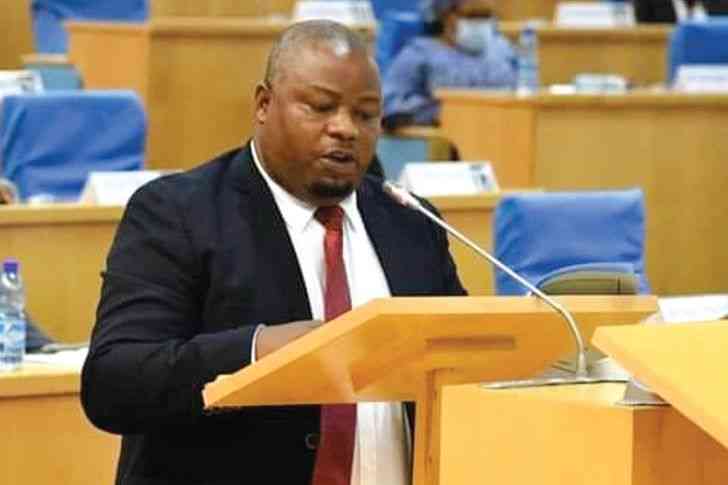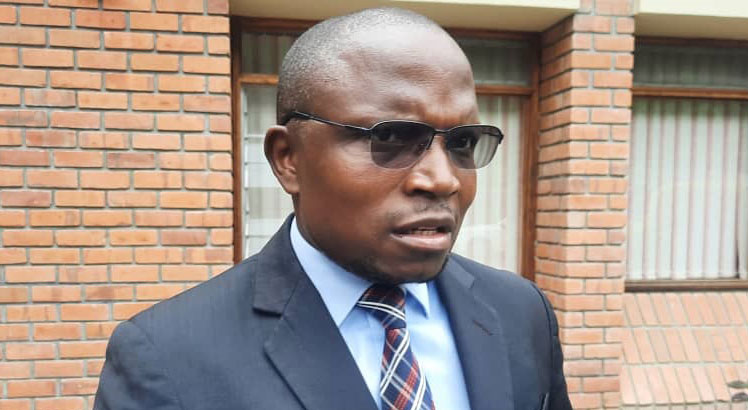Court declares Escom private company
The High Court in Blantyre has cleared the mystery surrounding ownership status of Electricity Supply Corporation of Malawi (Escom) after upholding a 2009 ruling by a magistrate court that the corporation is a private company limited.
Registrar of the Supreme Court of Appeal and High Court of Malawi, Gladys Gondwe, confirmed in an interview Thursday the judgement was delivered by Judge Roland Mbvundula last week Friday.

The 2009 ruling followed the Anti-Corruption Bureau’s (ACB) arrest of former head of Escom Kandi Padambo who was charged with four counts including misuse of public office for allegedly steering contracts towards a business associate and failing to disclose interests.
Padambo denied all the charges he was accused of and the magistrate’s court acquitted him on December 22, 2009 on the basis of the interpretation of the law rather than the available evidence, which confirmed Escom was a private company.
The court argued that as an employee of Escom at the material time, Padambo was not a public officer since the company which employed him was not itself a public body within the meaning of the provisions of the Corrupt Practices Act (CPA).
But ACB appealed against the ruling on grounds that, among others, the magistrate court erred in law in holding that limited liability companies in which government has shareholding like Escom were not public bodies under the CPA.
As such, the ACB wanted the High Court to make a determination whether such limited liability companies were public bodies or not.
However, in his February 19 2021 judgement Judge Mbvundula dismissed the ACB appeal, arguing he did not find any merit in it.
Reads the ruling: “Escom Ltd may be a public body under, say, the Public Procurement Act or the General Interpretation Act. And it may be so by reason of its reporting structure… But that does not necessarily render it a public body under the Corrupt Practices Act.”
In an interview, legal expert Ahmed Mussa of Ritz Attorney at Law, said the court ruling buttressed the fact that Escom Limited was a private company by shares and not a public body.
“Therefore, its employees cannot be charged with an offence such as misuse of public office contrary to the provisions of the Corrupt Practices Act. This charge is heavily misplaced as it only applies to public officers and employees of Escom are not public officers.
“Therefore, in future, Escom’s employees cannot be charged with any such offences committed by public officers with the advent of this ruling and of course the existing laws and facts,” he said.
Mussa said following the ruling, there was need for the State to be aware of the right offences to charge private companies’ employees as opposed to public companies to avoid a repeat of what has unfolded in the case
On his part, Padambo, who is now secretary general of the opposition United Democratic Party (UDF) said the ruling vindicated the fact that government was abusing its power to punish innocent professionals it imagined were its enemies and, sometimes, were duly doing their jobs and refusing to carry out compromising directives.
“I was charged with offences under the Penal Code and the Corrupt Practices Act which were all trumped up and absurd. All the offences raised against me could not be sustained in court because they were frivolous and clearly malicious and equally enigmatic,” he said.
Padambo said apart from vindicating his innocence, the ruling brought to light the plight of officers in public institutions who are sometimes subjected to “extremely unfair treatment” and their careers destroyed by individuals in positions of political power.
“It is a question of poor governance in an environment where personalities can loom far too larger than established institutions,” he said.
Padambo further said as a former Escom boss, who was part of the main players in incorporatising Escom under the Companies Act, the company was delisted from the list of Statutory Companies under a Government gazette notice in 1998 after the incorporation.
Last week, Weekend Nation investigations revealed that although government was fully controlling Escom as a statutory body, the institution was in fact a private company limited by shares after being incorporated under the country’s Companies Act 1984.
Legal documents Weekend Nation saw indicated Escom was registered at the Registrar of Companies as a private company with registration number 5081 after changing from Electricity Supply Commission of Malawi.
Names of three directors, a managing director, a company secretary and auditors with a share capital of K100 million divided into 50 million ordinary shares of K2 each were presented during the registration process.
The directors were Secretary to the Treasury, Comptroller of Statutory Corporations and general manager of the liquidated Malawi Development Corporation (MDC).
Wilfred Paul Amani was the managing director while Gautoni Kainja was the company secretary with Deloitte & Touche being the appointed auditors.
In 2015, Fichtner, a German management consultancy firm that specialises in energy and infrastructure sectors, in association with Azorom conducted an organisational review and transitional organisational structure for Escom and in its report it also said Escom was a private limited liability company whose powers were supposed to be governed by the Companies Act and Articles of Association.
Escom’s mandate is to procure, transmit and distribute electricity in the country.






One Comment